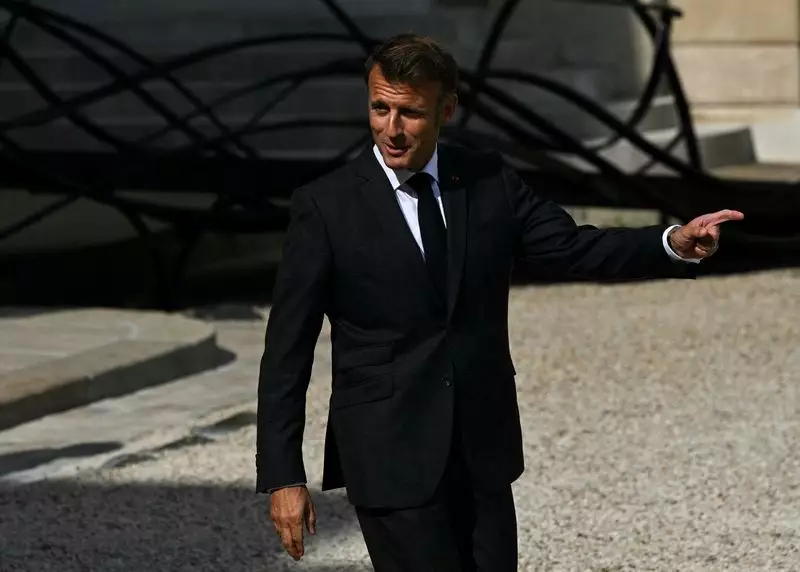France’s President Emmanuel Macron is set to visit Belgrade in an attempt to enhance the relationship between France and Serbia. The Balkan country is currently navigating its EU membership bid while also maintaining close ties with Russia and China. During the visit, Macron and Serbia’s President Aleksandar Vucic will discuss various topics, including the potential purchase of France’s Rafale fighters, energy cooperation, and advancements in artificial intelligence.
Serbia finds itself in a unique position on the edge of the EU, with strong connections to both the East and the West. Macron emphasized in an op-ed piece that Belgrade’s independent stance can only be sustained under the EU’s support. The EU remains a significant investor in Serbia, with many Serbs employed in Western-owned companies, highlighting the country’s economic dependence on Western nations.
Despite the potential benefits of acquiring Rafale aircraft from France, Serbia’s President Vucic mentioned unresolved issues with the purchase, particularly related to guarantees rather than the price. This transaction is seen as a critical shift away from Russian influence in Serbia, with the need for foreign policy commitments accompanying the military technology acquisition.
Dependency on Russian Gas
Serbia’s reliance on Russian gas presents a challenge as the country looks to diversify its energy sources. While Belgrade has scaled back military cooperation with Moscow following the Ukraine conflict, it has refrained from imposing sanctions on Russia. The country’s military capabilities lean towards Soviet technology, but recent acquisitions from Western companies, such as Airbus and Thales, signal a gradual shift.
President Vucic and Macron are expected to discuss collaboration in energy and artificial intelligence sectors, with the signing of numerous agreements anticipated during the visit. However, Serbia’s path to EU membership requires significant reforms, including improvements in democracy, rule of law, judiciary, anti-corruption measures, and aligning foreign policies with those of the EU, potentially including sanctions against Russia.
The visit of President Macron to Belgrade underscores the complexities of Serbia’s foreign relations, balancing between EU aspirations, historical ties with Russia, and the growing influence of China. As Serbia navigates these challenges, the country faces crucial decisions regarding its future direction and alignment with Western values and standards. President Macron’s visit serves as a reminder of the intricate web of diplomatic relationships in the Balkans and the strategic importance of Serbia in the broader European context.

